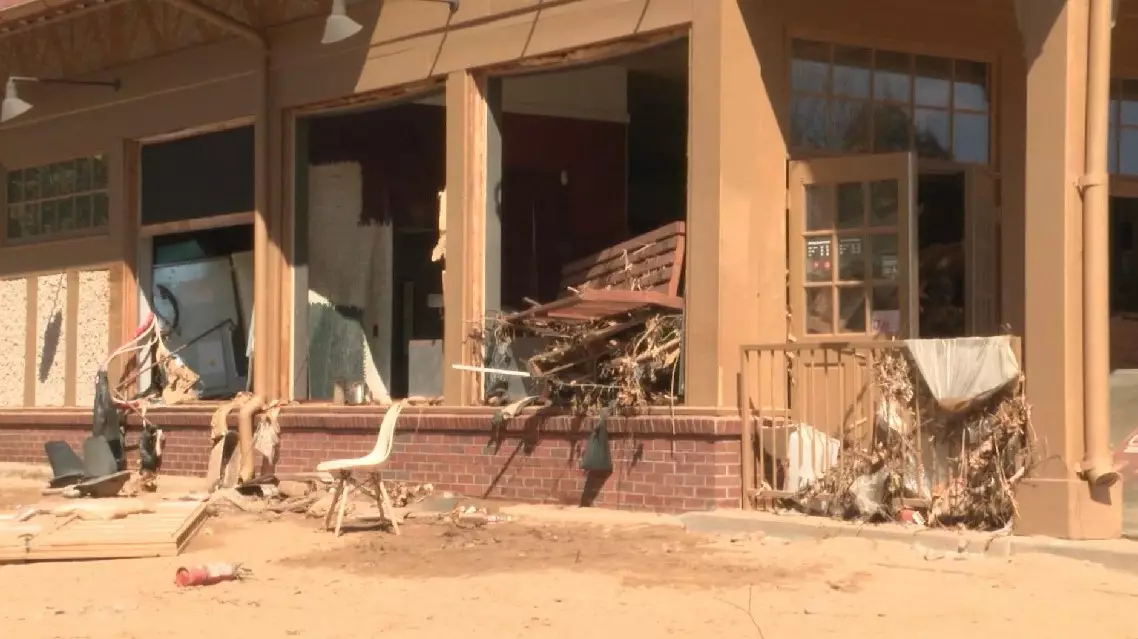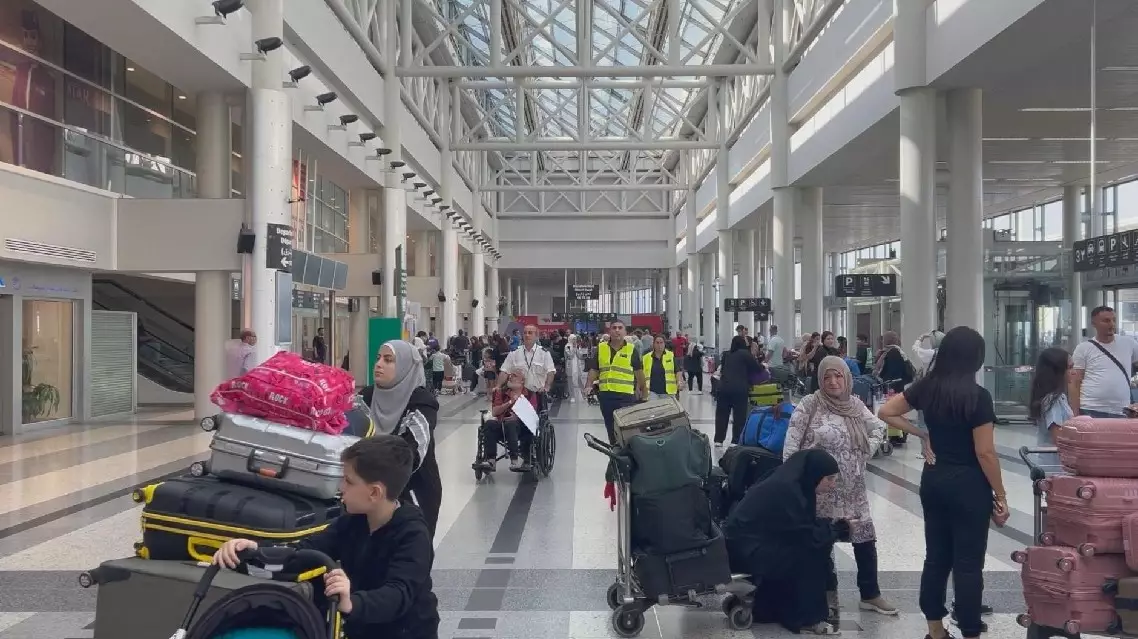As the aftermath of Hurricane Helene continues to unfold in parts of southeastern United States, recovery efforts are hindered by extensive damage
As of now, more than 70 people are still missing in the Asheville area of North Carolina, and local emergency authorities said search and rescue efforts are still underway.
The cleanup and repair work are still underway a week after the hurricane wreaked havoc in Buncombe County. Traffic on the main road has largely resumed. "This pretty much went under water, as you can see on the windows, it was this high. So it's over your head, as you see the line is on the windows. That's how high it was. It's about almost six feet, and just flooded everything," said local business owner Chris Dockrey, whose two stores suffered extensive damage from the hurricane.
Although a week has elapsed, the ongoing shortage of water and outage of electricity continue to exacerbate the local crisis.
"There is no power. It took out all the power lines, and nowhere in Buncombe County really has water except for somewhere like down south a little bit then," Chris added.
As of now, Helene has killed more than 200 people across six states, marking it as one of the deadliest storms to impact the United States.

Recovery efforts lag in areas of southeastern U.S. affected by Hurricane Helene
Travelers to Lebanon are seeking a quick and secure way out of the country, as Israel ramps up its attacks on Hezbollah. Governments worldwide have also facilitated evacuations, encouraging their citizens to leave before the situation worsens.
Annika finally made it to the airport in Beirut. She was supposed to leave next week, but the conflict between Israel and Hezbollah militants shortened her stay. Now, the only thing on her mind is getting back home.
"It's horrible. And you have drones flying over your house and things like that. I didn't feel afraid, but I also have to leave in the future for work, and I don't know, it's so insecure. Maybe I don't want to stay here for another few weeks," said Annika, a traveler leaving Lebanon.
Although everything seemed calm and far away for the first few days, the scene changed quickly in Beirut. Israeli airstrikes intensified, causing many to flee as fast as they could.
"I'm very worried because you don't know what can happen from day to day. You're living like second to second. You don't know what's going to happen. And it's very, very stressful. And this has to come to an end, you know? So, it's time. It's time to go," said Tania, another traveler leaving Lebanon.
The fighting, which has escalated over the past few weeks, has forced the evacuation of thousands of tourists and people with dual citizenship, leaving many scrambling to the airport to secure any available flight in an atmosphere of ongoing strikes. Governments have stepped in to assist with these evacuations, using various channels to reach those who need help.
"We have been using social media a lot to get the message out. [For] our foreign minister, prime minister, and the embassy here in Lebanon, we have been putting out on Twitter, on Facebook, and on Instagram the message that the crisis is here, you need to leave now as soon as possible. And still some don't get the message. But we're getting there, because we've got a good pick-up today, we're getting close to 500 people out on two assisted departures to Cyprus today. And we'll probably continue that for a few days," said Andrew Barnes, Australian ambassador to Lebanon.
The Netherlands, Belgium, Spain, and Australia have all sent government representatives to Beirut to help people who want to leave or need support. Though the first couple of days were chaotic, as many were fleeing, the evacuation now seems to be proceeding steadily. Although Beirut and its airport are still relatively safe, governments urge their citizens to leave before things worsen.
"We've been dealing with this crisis for a while now, and our government has been urging Australians in Lebanon to return home because we were fearful that the situation could escalate. Now it has escalated badly and we are urging all Australians to come to the airport and get on a flight. There are still flights going, the airports still open. They need to leave now because we don't know how the crisis might escalate," Barnes said.
Since Sept. 23, the Israeli army has intensified its airstrikes against Hezbollah targets across Lebanon, causing great civilian casualties and forcing residents in many areas to leave their homes. It has also launched what it describes as a "limited" ground operation in Lebanon.

Countries facilitate citizens' evacuation from Lebanon as fighting intensifies










